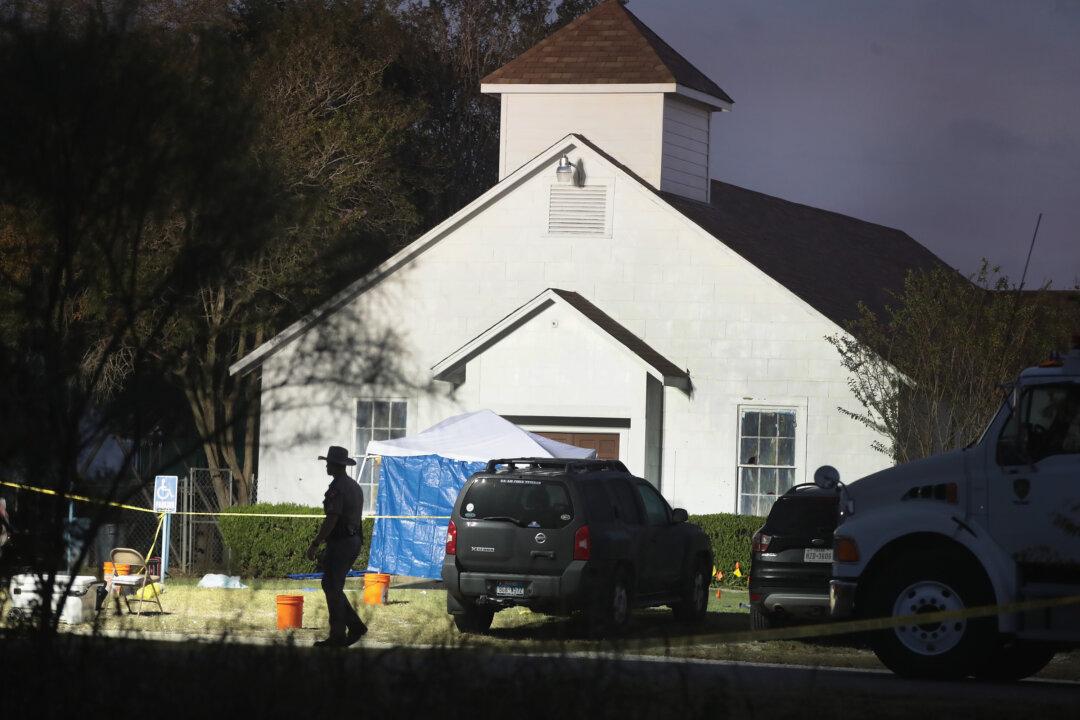The U.S. Department of Justice (DOJ) has reached a tentative agreement with dozens of plaintiffs who allege the department failed to keep its criminal background check system up to date, and that these failures contributed to a deadly shooting at a church in Southerland Springs, Texas, in 2017.
In November 2017, a gunman entered the First Baptist Church and opened fire, killing 26 people and injuring 22 more. In the days after the attack, the Pentagon revealed that suspect Devin Kelley was court-martialed and separated from the U.S. Air Force after assaulting his first wife and stepson. The Air Force admitted it had failed to transmit information about Kelley’s conviction to the National Instant Criminal Background Check System (NICS). Prior criminal convictions can disqualify individuals from purchasing firearms.





